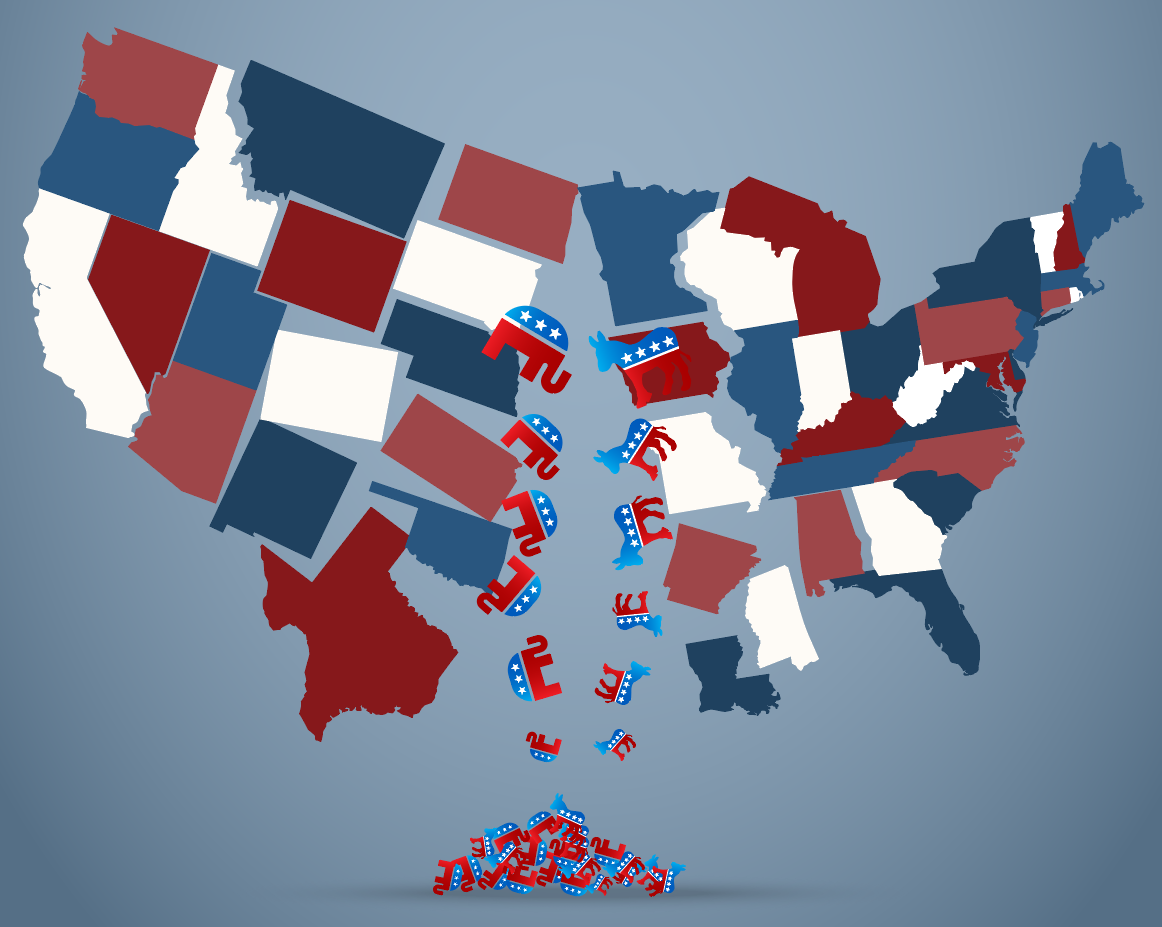
4 minute read
A HOUSE DIVIDED
The 2024 U.S. presidential race between former President Donald Trump and Vice President Kamala Harris presents a stark contrast in political agendas, with each candidate offering divergent views on the future of America. Both candidates represent established political figures, but their platforms reflect very different approaches to key issues such as immigration, the economy, and social policies.

Donald Trump’s Agenda
Former President Donald Trump is running on a platform that largely mirrors many of his first-term policies but with more aggressive undertones. His core messaging focuses on immigration, economic nationalism, and limiting federal regulations, particularly in social issues.
Immigration: Trump has pledged to carry out the largest domestic deportation operation in U.S. history, reinstituting strict policies like the "Remain in Mexico" program and Title 42, which restricts immigration on public health grounds. Additionally, Trump seeks to end birthright citizenship for children born to undocumented immigrants in the U.S. and expand his travel ban to more countries (1). This hardline stance aims to appeal to his base, which prioritizes border security and conservative immigration policies.
Economy: On the economic front, Trump has promised sweeping tariffs on foreign goods, including a proposed 60% tariff on Chinese products. He advocates for a series of tax cuts, particularly for businesses, and aims to end taxation on Social Security and overtime pay (2). His policies reflect a continuation of his "America First" agenda, emphasizing protectionist trade measures and reducing foreign economic influence.
Social Issues: Trump’s second-term plans also include rolling back transgender rights and implementing stricter measures on education regarding LGBTQ+ issues. He would reinstate policies that limit transgender people’s participation in the military and target gender identity-related healthcare (3). Additionally, his promise to introduce "ideological screening" for immigrants highlights a broader effort to reshape cultural and legal norms in the U.S.

Kamala Harris' Agenda
Vice President Kamala Harris, representing the Democratic Party, offers a platform that continues many of the priorities from the Biden administration but also focuses on expanding civil rights and economic justice. Harris positions herself as a candidate with a more progressive and inclusive vision for the country.
Immigration: Harris supports comprehensive immigration reform, focusing on creating pathways to citizenship for undocumented immigrants, particularly those brought to the U.S. as children (Dreamers). She has highlighted the need for bipartisan solutions that include stronger border security alongside humanitarian policies, in contrast to Trump’s more stringent approach (4). Harris has criticized Trump’s handling of immigration during his presidency, arguing that it worsened conditions at the U.S.-Mexico border.
Economy: Harris promotes policies aimed at bolstering the middle class through tax cuts for lower-income families and investments in green energy and infrastructure. Her platform emphasizes economic equality, affordable housing, and workforce development, particularly for marginalized communities. She has also committed to raising the minimum wage and ensuring paid family leave (5). Harris advocates for tackling climate change through sustainable job creation and reducing reliance on fossil fuels.
Social Issues: Harris champions a robust civil rights agenda, particularly in defending LGBTQ+ rights, reproductive rights, and voting access. She has spoken out against efforts to restrict abortion access and plans to codify Roe v. Wade if elected. Her stance on LGBTQ+ issues includes protecting transgender rights, reversing Trump-era policies that limited their participation in the military and restricting their healthcare access (6). Harris has also been vocal in her opposition to systemic racism, promoting criminal justice reform and police accountability measures.
Contrasting Views
The choice between Donald Trump and Kamala Harris in the 2024 election highlights two vastly different paths for America. Trump’s agenda, marked by a return to stricter immigration policies, economic protectionism, and social conservatism, appeals to voters seeking a return to his first-term policies. In contrast, Harris' platform offers a more progressive, inclusive vision, with a focus on civil rights, immigration reform, and climate-conscious economic growth.
As the race progresses, these contrasting visions will play a significant role in shaping the electoral landscape. Both candidates are rallying their respective bases, but the key to victory may lie in appealing to swing voters who are divided on issues such as immigration, economic inequality, and the direction of American democracy.




